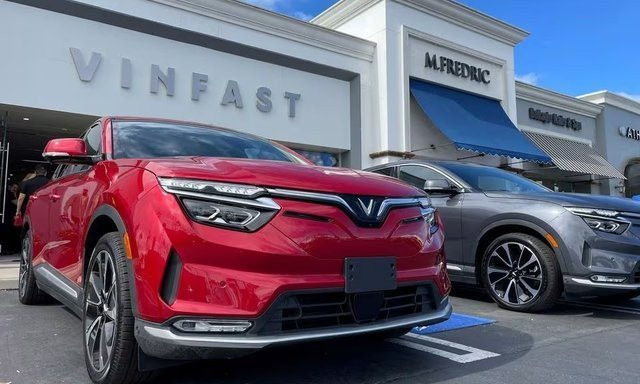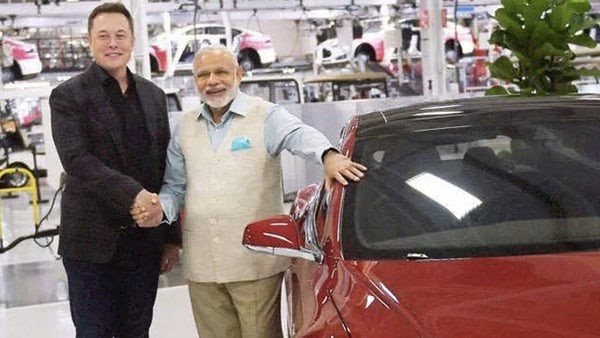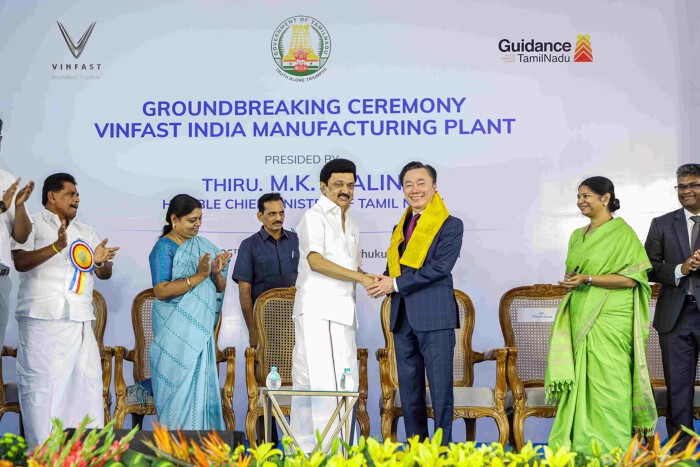
According to Electrek, India is set to take the final steps to open its doors to Tesla and other electric car manufacturers, with a new program aimed at reducing high import taxes on electric vehicles. However, the country’s government has also set some conditions to qualify for the incentive.
Currently, India is a major automotive market where Tesla has yet to make its mark.
Earlier, the U.S. automaker has been negotiating with the country for several years to find ways to avoid high import duties on new vehicles.
There have been moments in 2021 where the two sides seemed to be getting close to a deal, but ultimately failed to succeed.
Tesla wants to use its usual method of initially importing electric vehicles from overseas factories and building a new market with service centers and charging stations before considering establishing manufacturing facilities. However, this is not feasible due to high import duties on new vehicles in India.

Tesla CEO and Indian Prime Minister discuss investment plans of the U.S. electric car manufacturer.
In the past year, there seems to have been significant progress towards a compromise, according to Electrek.
Last year, CEO Elon Musk had a meeting with Indian Prime Minister Narendra Modi in the U.S., and after the meeting, Musk said Tesla would invest in India “as soon as possible.”
Tesla expressed interest in building a factory in India to produce an electric car priced at $24,000, about 25% cheaper than the company’s existing model.
Recently, India has announced its new plan in a press release.
The Federal Government has approved a plan to turn India into a destination for producing cutting-edge electric vehicles that can be manufactured domestically. The policy is designed to attract investment in electric vehicles from reputable global automakers.
The program will allow electric vehicle manufacturers to access lower import taxes of less than 15% for electric vehicles valued “over $35,000 within a total period of 5 years.” However, the populous country has specific requirements for companies to qualify for the program:
– Manufacturers need to have a minimum investment of INR 41.5 billion (approximately $500 million).
– Set up an electric vehicle manufacturing facility in India within 3 years with localization rates of 25% in the third year and 50% in the fifth year.
– Automakers taking advantage of this agreement will be allowed to import up to 40,000 electric vehicles with low tariffs, with a maximum of 8,000 cars per year. The number 40,000 may be relatively restrictive for leading automakers like Tesla.
India’s latest move is expected to open up many benefits for automakers, including “made in Vietnam” brand VinFast.
Earlier, VinFast proposed to the Indian government to consider reducing import duties on the company’s vehicles for about two years, down to 70% – 80%, and to allow a limited quantity of cars to help customers become acquainted with VinFast products.

VinFast India CEO Pham Sanh Chau said VinFast has started construction of a plant in the southern Indian state of Tamil Nadu and is expected to begin production by mid-next year, serving the domestic market first before exporting.
According to VinFast, the electric vehicle manufacturing project in Tamil Nadu will have a capacity of up to 150,000 vehicles per year, compared to 250,000 vehicles per year at the main factory in Dinh Vu, Hai Phong.
VinFast and Tamil Nadu have also agreed to cooperate with up to $2 billion in investment, with an expected investment of $500 million in the first five years of the project.
With this joint venture, Thoothukudi becomes Tamil Nadu’s third automobile hub after Chennai and Hosur, and Tamil Nadu is the only Indian state with three automobile hubs, according to The Hindu.
“This facility will not only serve development goals in the Indian market but also meet the demand for exports to Southeast Asian, Middle Eastern, and African countries,” said Pham Sanh Chau, VinFast India CEO.












